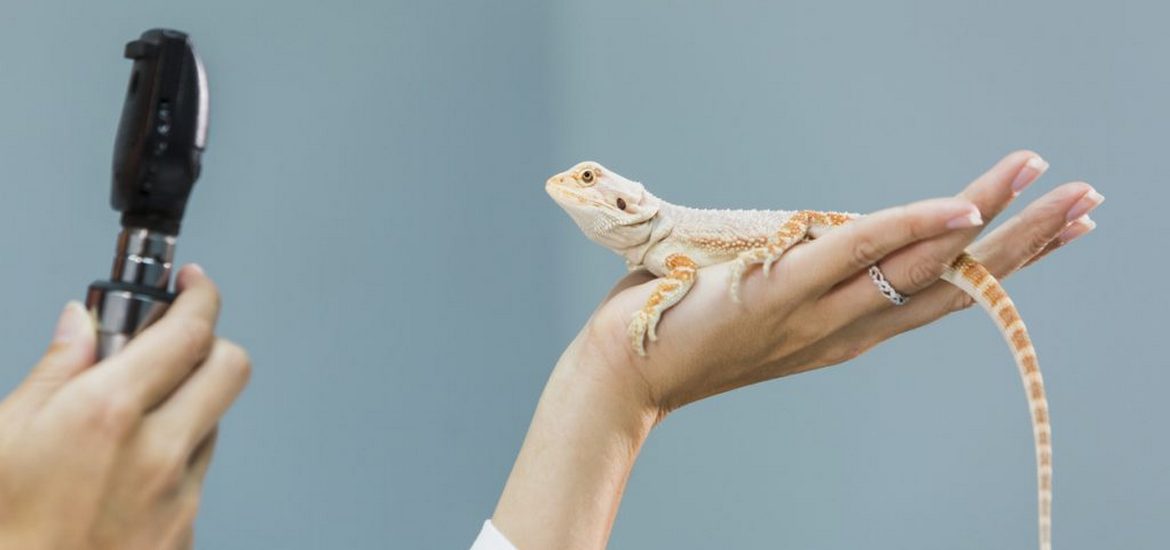Jan 26, 2024, 9:37 AM
Safeguarding Your Pets and Household with Eurovets
Prioritizing your safety and well-being, as well as the safety of your pets, is crucial for responsible pet ownership. It is essential to ensure that appropriate biosecurity measures and disinfection are in place if you are thinking about adding exotic creatures to your collection to stop the transmission of disease. Thankfully, F10 products from Eurovets are available for distribution. These products are made to offer dependable and efficient disinfection, protecting pet's well-being. You may rely on F10 products to assist you in providing your exotic pets with a secure and healthy habitat. Let's explore the vital biosecurity factors to consider while bringing new exotic pets into your home.
Comprehensive Health Examination
Regardless of where you purchased your new pet—from a respectable pet shop, a private breeder, or a rescue center—it's always a good idea to bring it in for a thorough examination by a local veterinarian. Veterinarians are skilled at performing in-depth examinations to spot possible medical issues. Even while most facilities provide exceptional care for their animals, receiving a clean report from your veterinarian guarantees that any underlying problems will be immediately resolved, giving your new family member a good start. Additionally, you may consider using F10SC Veterinary Disinfectant, F10 hand gel, and other products for infection control and sanitization.
Quarantine
Introducing a new exotic pet to an established group can sometimes cause problems, especially if the newcomer carries undiagnosed diseases. It's important to implement quarantine measures to prevent the spread of illness. This involves housing the new members separately, preferably with disposable bedding so they can be observed in a controlled environment. In veterinary clinics, F10SC veterinary disinfectant is a highly effective way to kill potentially dangerous microorganisms like viruses, bacteria, fungi, and spores. The disinfectant is safe for use around humans and animals. The length of quarantine varies depending on the species of the pet, so it's always a good idea to consult with your vet to determine the appropriate timeframe.
Treatment of Parasites
Regardless of species, it is advised that all newly acquired exotic pets have parasite treatment. Insect parasites such as intestinal worms, fleas, mites, and ticks can infect common pets like dogs, cats, and uncommon species. These parasites are dangerous to pet owners and their current pets since they are very contagious. Working with your veterinarian to offer suggested parasite treatments while under quarantine is important. Additionally, F10 products like F10 Aerosol Fogger and F10 SCXD Veterinary Disinfectant/cleaner can help reduce the likelihood of parasite transmission to your animal friends by ensuring a healthy and clean habitat.
Keeping Up with Hygiene
When handling newly acquired exotic creatures, it's imperative to adhere to stringent cleanliness protocols. The risk of disease transmission persists even in the presence of appropriate quarantine procedures. Pathogens can be carried on objects known as fomites, facilitating the spread of diseases such as Salmonella. To prevent the unintentional transmission of pathogens, it is crucial to maintain vigilant hand hygiene and regularly disinfect items within the enclosure. This will ensure a healthy environment for all pets. You can easily get F10 products delivered to you with the help of Eurovets, a leading veterinary supplier in Dubai and GCC.
A Few Communicable Diseases in Exotic Animals
Rabbits With Myxomatosis
It is an extremely contagious and easily transmissible disease that kills wild and captive rabbits.
Rabbit Hemorrhagic Disease (RHD)
It is one of the extremely contagious types of disease that kills rabbits. Bleeding, melancholy, and languid behavior are possible symptoms.
Reptile-Related Salmonella
Lethargy, diarrhea, vomiting, and decreased appetite are some of the symptoms that make it extremely contagious and transmissible to humans.
Hamsters With Wet Tails
A wet patch surrounding the tail indicates a communicative bacterial infection in hamsters. Lethargy and diarrhea are among the symptoms.
Avian Polyomavirus
Birds are susceptible to fatal infections, especially those of the parrot family. Contagious, exhibiting signs like breathing difficulties and an enlarged abdomen.
To Sum Up
Biosecurity protocols must be given priority for the safety of your pets and your family, regardless of the exotic species you bring into your home. Consult your veterinarian for guidance on understanding and implementing efficient biosecurity procedures. These may include using F10 products and medicine to reduce the spread of parasites or treat possible illnesses. See a veterinarian for expert advice if any issues develop after bringing home a new exotic pet. In the fascinating world of exotic pet ownership, put your cherished pets' health and safety first with Eurovets.

